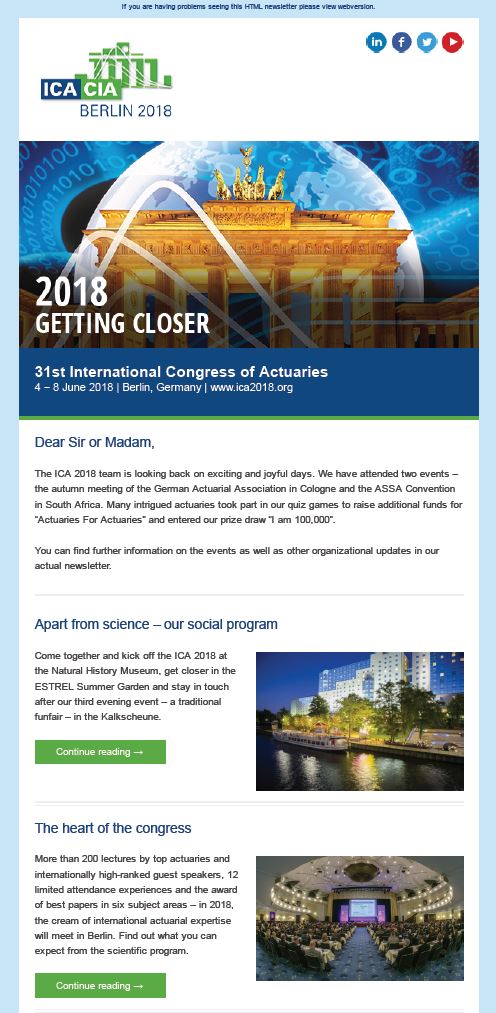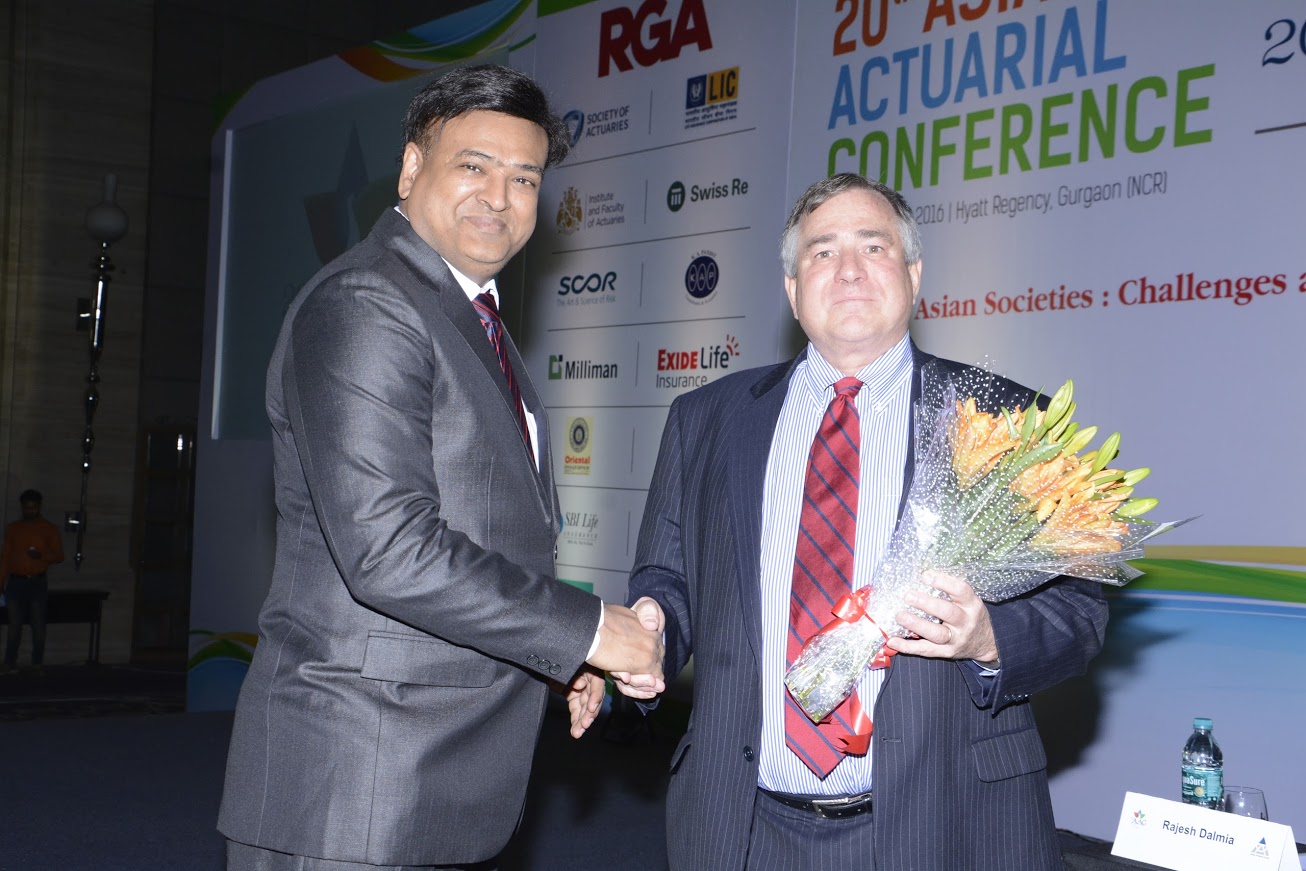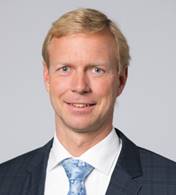Deutsche Aktuarvereinigung (DAV), Germany
A New Youth Website
In early November the DAV launched a platform for potential actuaries: werde-aktuar.de. Besides receiving all necessary information about how to become an actuary in Germany, visitors to the site can also find different projects for would-be actuaries, such as an internship program and workshops for young mathematics students, that are offered by the DAV and its partner association DGVFM.
Actuaries are encouraged to visit werde-aktuar.de; the DAV is looking forward to receiving your feedback.
First Pension Summit by German Actuaries
In December the DAV staged its first pension summit, focusing on the future of the German three-pillar retirement system. The aim of the summit in Cologne was to start an open conversation with all relevant stakeholders about the challenges that might soon put the retirement system to a test.
 A senior economist and a member of the German Federal Bank provided a macroeconomic-based background to a future-oriented pension system, which was addressed in a panel discussion involving a member of the German Parliament, representatives of trade unions and actuaries. More information about the summit is available here. A senior economist and a member of the German Federal Bank provided a macroeconomic-based background to a future-oriented pension system, which was addressed in a panel discussion involving a member of the German Parliament, representatives of trade unions and actuaries. More information about the summit is available here.
Second ICA 2018 Newsletter Published – Register Now
How about dining next to Brachiosaurus brancai, the tallest mounted dinosaur skeleton in the world? Find out what you can expect from this and the other evening events in our International Congress of Actuaries 2018 (ICA 2018) newsletter, which was published in November to inform you about all the latest news regarding the event in Berlin.
It also includes updates on the scientific program, the announcement of the first national partner of the Virtual ICA 2018 and information about the organisers’ visits to the DAV’s autumn meeting and the ASSA convention in Cape Town.
Be sure to receive updates by subscribing here.
American Academy of Actuaries, U.S.
American Academy of Actuaries/IAAHS Global Health Care Webinar Looks at France, United Kingdom
More than 300 people from about 285 registered sites listened to the Oct. 5 webinar on the health care systems of France and the United Kingdom. Part of the global health care webinar series presented jointly by the Academy’s Health Practice International Committee and the International Actuarial Association Health Section (IAAHS), the webinar’s panel looked at major cost drivers in both countries, the outlook for reform, and the role of actuaries. The webinar was moderated by April Choi, who has been chairman of the IAAHS since 2014 and was chairperson of the Academy’s Health Practice International Task Force from 2009 to 2014.
Christelle Dieudonné and Yann Quéré, actuarial executives with more than 20 years of experience, presented on France’s health care system. London-based Adrian Baskir, vice chairman of IAAHS with 25 years of experience in management and executive roles, gave the overview of the U.K.’s health system.
Dieudonné, chairperson of the Health Committee of the French Institut des Actuaires and the institute’s representative to the IAA’s Health Committee, noted that France’s social security system has been managed historically by four separate administrations.
Quéré noted that the government generally sets prices for medical visits and drugs. Some, like hospital visits, are well reimbursed, and others, like drugs and optical services, are not so well reimbursed. The issue of out-of-pocket expenses becoming higher is “quite a cultural issue,” he said, and will be a big issue in France’s presidential election scheduled for next year. Health actuaries have a large role in shaping the government’s policy, Dieudonné said.
Baskir noted that, like France and the United States, the U.K. (England, Scotland, and Wales, plus Northern Ireland) has an aging Baby Boomer population. Its National Health Service (NHS) is highly regarded, with any perceived cuts to it drawing widespread criticism from the public and press. The NHS topped a poll of things Britons were proud of—ahead of the military, the royal family, and the country’s Olympic team, he said.
“Everyone is really proud of [the NHS],” Baskir said, and as in France, the system’s future is an important political issue. More outsourcing of services is controversial, and a funding shortfall is projected in the system by 2018-19, with the government seeking a £22 billion savings “that are difficult to find,” he said. “The NHS has a big deficit that’s growing, and it will continue to grow as the population ages.”
Slides and audio from the webinar are available to Academy members free of charge.
Bob Beuerlein Becomes President of the American Academy of Actuaries
At the Academy’s Annual Meeting and Public Policy Forum in Washington in November Bob Beuerlein became the Academy’s 52nd president, succeeding Tom Wildsmith. In his farewell remarks, Wildsmith gave a brief history of the Academy’s founding, and spoke to the importance of its professional and objective voice on key policy issues to national and state policymakers.
In his inaugural address, Beuerlein challenged actuaries to become “more like thermostats than thermometers”—with the ability to change the temperature as needed, rather than merely gauge it. “By understanding complex issues, we can choose to influence the environment regarding these issues and thus impact the outcome of situations. We must avoid being like thermometers that understand the issues but do not influence the environment with this understanding,” he said.
Other changes to the Academy’s leadership include:
Stephen Alpert, an actuary specializing in retirement and pension issues who has been an Academy volunteer since 2000 and is chairperson of the Public Interest Committee, began a one-year term as the Academy’s president-elect.
Tom Campbell, a member of the Committee on Qualifications and a former vice president, life, began a one-year term as secretary-treasurer.
Three vice presidents started two-year terms:
Rade Musulin, a member of the Academy’s Extreme Events Committee, is the new vice president, casualty.
Shari Westerfield, who has served as vice chairperson of the Health Practice Council (HPC) and was a regular director on the Academy’s Board from 2010 to 2012, is the vice president, health.
D. Joeff Williams, a current Academy board member and chairperson of the Life and Health Qualifications Seminar Committee, is the vice president, professionalism.
The new regular directors are April Choi, Robert J. Rietz, and Lisa Slotznick who will serve three-year terms and Stuart Mathewson who will serve a one-year term.
Academy’s Solvency Committee Submits Comments to IAIS, NAIC
The Solvency Committee submitted comments to the International Association of Insurance Supervisors (IAIS) on the Risk-based Global Insurance Capital Standard Version 1.0 public consultation document dated July 19, 2016.
It addressed a number of questions about the market-adjusted valuation (MAV) approach; generally accepted accounting principles (GAAP) with adjustments, including default risk; margin over current estimate (MOCE); risk mitigation; management actions; lapse risk; premium and claims reserve risks; and catastrophe risk.
Casualty Actuarial Society, U.S.
CAS Institute Opens Registration for Credentialing Program, Membership and Experienced Practitioner Pathway
The CAS Institute (iCAS), a new CAS subsidiary offering specialty credentials for quantitative professionals, has opened registration for the first requirements for its Certified Specialist in Predictive Analytics credential, as well as applications for earning the credential through the Experienced Practitioner Pathway. In addition, membership in an iCAS practice community for advanced analytics and data science is now open to all interested professionals. See the iCAS website for more details.
Nancy Braithwaite Begins Term as CAS President
The CAS is pleased to announce that Nancy Braithwaite, a distinguished insurance industry veteran with more than 30 years’ experience in risk management, is its newly elected president. Ms. Braithwaite’s one-year term began at the organization’s recent annual meeting in Orlando, Florida.
New Issue of Variance
A new issue of the society’s peer-reviewed research journal Variance is now available. Papers and information about subscriptions can be obtained at VarianceJournal.org
Ratemaking and Product Management (RPM) Seminar
The CAS is accepting registrations for its 2017 RPM Seminar, scheduled for March 27–29 in San Diego, California. Actuaries from around the world are encouraged to take advantage of the educational sessions and networking opportunities. The seminar includes seven optional full-day workshops, including a new one on enterprise risk management (ERM). Visit casact.org/rpm to learn more.
CAS Enters into Mutual Recognition Agreement with the ASSA
The CAS has entered into a mutual recognition agreement (MRA) with the ASSA. It was signed by Nancy Braithwaite and ASSA President Roseanne da Silva on November 22 during the ASSA convention in Cape Town. The ASSA joins the IFoA, Institute of Actuaries of Australia and Institute of Actuaries of India as organizations with which the CAS has MRAs.
Society of Actuaries, U.S.
SOA at the 20th Asian Actuarial Conference
The 20th Asian Actuarial Conference, organized by 12 actuarial associations in the East Asia region, took place in November in Gurgaon, India. This year’s theme was “Changing Asian Societies: Challenges and Opportunities” and the event focused on the situations that actuaries and other financial-sector professionals face in the region due to the evolving political, economic and demographic sectors.
 The SOA, one of the event’s sponsors, was represented by President Jeremy Brown; managing director of research Dale Hall; Ann Henstrand, senior director, international; and lead China representative Jessie Li. The SOA, one of the event’s sponsors, was represented by President Jeremy Brown; managing director of research Dale Hall; Ann Henstrand, senior director, international; and lead China representative Jessie Li.
Jeremy was the keynote speaker during the opening ceremony and delivered a speech during the plenary session entitled “Expanding the Profession and Blurring of Boundaries”.
Living to 100 Symposium
Actuarial Association of Europe (AAE)
AAE elects New Chairperson
 On 28 September, the Actuarial Association of Europe announced that Kristoffer Bork had been elected as the new Chairperson of the AAE for the year to September 2017. Kristoffer Bork is a Danish national and was President of the Den Danske Aktuarforening (the Danish Actuarial Association) from 2010 to 2016. On 28 September, the Actuarial Association of Europe announced that Kristoffer Bork had been elected as the new Chairperson of the AAE for the year to September 2017. Kristoffer Bork is a Danish national and was President of the Den Danske Aktuarforening (the Danish Actuarial Association) from 2010 to 2016.
Kristoffer Bork said: "I am honoured to have been given the opportunity of leading the AAE, and I look very much forward to working with and supporting our Member Associations across Europe. In particular, I want to focus on building further on the existing relationships between the AAE and European institutions. Moreover, in the coming year, the AAE plan to implement a revised strategy and to extend the cooperation with the IAA, the global international actuarial association, even further. It will be both challenging and exciting to contribute to improvements on these important issues”.
Philip Shier, the Immediate Past Chairperson, said: “Kristoffer has many years of actuarial experience, both in Europe and globally, and having worked closely with him over the past 12 months, I know that he will be a sensitive and dynamic Chairperson of the Association over the coming year.”
Ad Kok, Chief Executive of the AAE said: “I am delighted that Kristoffer has been selected for this role by the General Assembly, and I look forward to continuing to build a strong and effective partnership between the executive and Kristoffer that draws on his experience to help deliver our strategy."
At the same General Assembly, Thomas Béhar (France) was elected as Vice-Chairperson for the coming year.
European Actuarial Academy (EAA)
New CERA Programme
The EAA is one of the main providers of actuarial education—especially when it comes to ERM, a concept that has gained significant momentum in the insurance industry and beyond.
The academy offers four training courses and exams (via the DAV) to actuaries who want to deepen their ERM knowledge and gain the internationally recognised ERM-related CERA credential.
The 2017 CERA seminars are scheduled as follows:
- Module A: Foundations Quantitative Methods of ERM—February 27 to March 2 in Vienna, Austria
- Module B: Taxonomy, Modelling and Mitigation of Risks—September 18–22 in Vienna
- Module C: Processes in ERM—March 27–28 in Zagreb, Croatia
- Module D: ERM – Economic Capital—March 29–30 in Zagreb
Additional information and registration forms can be obtained here.
EAA Series – New Title, and Seminar in Munich
The EAA series of publications, supported by the academy, cover actuarial topics in a broad and interdisciplinary sense and are aimed at students, academics and practitioners in insurance and finance.
The Handbook on Loss Reserving, edited by Prof. Dr. Michael Radtke, Prof. Dr. Klaus Schmidt and Anja Schnaus, is now available. The 322-page textbook can be purchased here and costs from around 102 €, plus applicable taxes and delivery costs.
It covers the basic aspects of actuarial loss reserving. Besides the traditional methods, it also includes a description of more recent approaches and a discussion of certain problems occurring in actuarial practice, like inflation, scarce data, large claims, slow loss development, the use of market statistics, the need for simulation techniques and the task of calculating best estimates and ranges of future losses.
Actuarial students, academics and practising actuaries will benefit from this overview of the most important actuarial methods of loss reserving by developing an understanding of the underlying stochastic models and how to practically solve some problems that may occur in actuarial practice. A seminar based on this handbook will be offered by the EAA in the spring in Munich.
Further details on published and upcoming titles are available here. |

 A senior economist and a member of the German Federal Bank provided a macroeconomic-based background to a future-oriented pension system, which was addressed in a panel discussion involving a member of the German Parliament, representatives of trade unions and actuaries. More information about the summit is available
A senior economist and a member of the German Federal Bank provided a macroeconomic-based background to a future-oriented pension system, which was addressed in a panel discussion involving a member of the German Parliament, representatives of trade unions and actuaries. More information about the summit is available  The SOA, one of the event’s sponsors, was represented by President Jeremy Brown; managing director of research Dale Hall; Ann Henstrand, senior director, international; and lead China representative Jessie Li.
The SOA, one of the event’s sponsors, was represented by President Jeremy Brown; managing director of research Dale Hall; Ann Henstrand, senior director, international; and lead China representative Jessie Li.  On 28 September, the Actuarial Association of Europe announced that Kristoffer Bork had been elected as the new Chairperson of the AAE for the year to September 2017. Kristoffer Bork is a Danish national and was President of the Den Danske Aktuarforening (the Danish Actuarial Association) from 2010 to 2016.
On 28 September, the Actuarial Association of Europe announced that Kristoffer Bork had been elected as the new Chairperson of the AAE for the year to September 2017. Kristoffer Bork is a Danish national and was President of the Den Danske Aktuarforening (the Danish Actuarial Association) from 2010 to 2016.